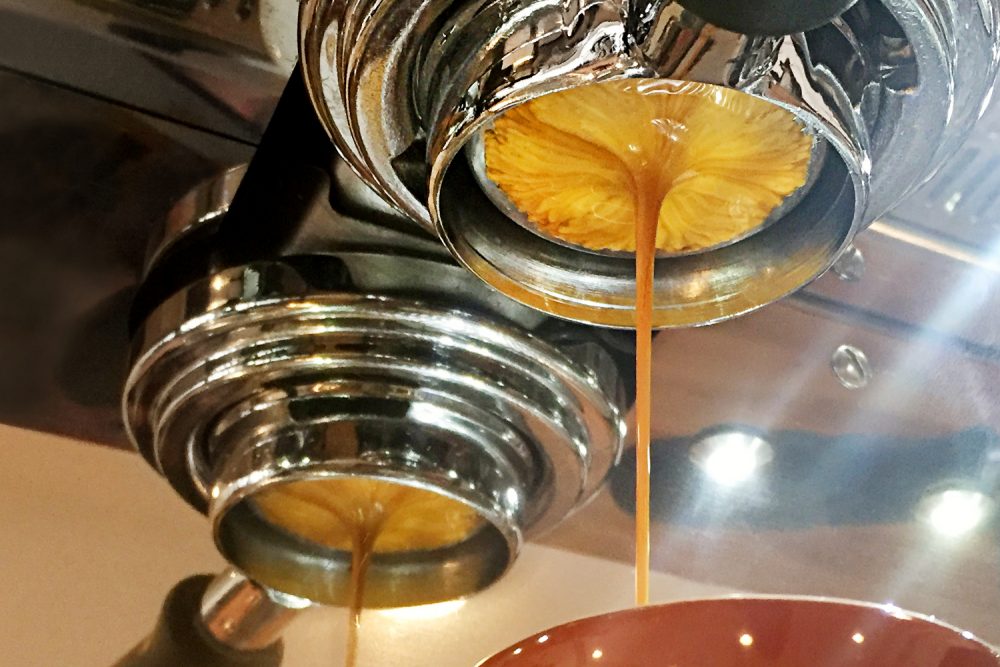The question of saying espresso or espresso will be quickly elucidated in this article, because both are actually correct and have distinct geographical origins. For that, let's take a closer look... are you now going to say espresso or espresso when talking about your little black one?
The origin of the word espresso
Espresso comes from the Italian verb "esprimere" , translated "express" in French, to designate the nature of the rapid extraction of an espresso, itself of Italian origin.
Note that the espresso in its main principles, a coffee extracted by steam under high pressure to make a short and rich coffee , all the same has French roots because the invention of the espresso machine was not made from overnight... this took several decades and we therefore owe the first innovation in this direction to a Frenchman, Louis-Bernard Rabaut, in 1820.

But that's a whole different story.
Why is the Italian expression “espresso” common around the world? For the reasons that you can already imagine, the Italians will end up giving their letters of nobility to the famous espresso (and therefore the espresso machine) and make it a whole section of culture much more important than with us!
“Espresso” then spread throughout the English-speaking world, with their own linguistic interpretation: Espresso for the English expression “ pressed out ” , which this time recalls the famous 9 bars of pressure to obtain a good espresso.
However we interpret it, it always relates to the extraction and the speed of this preparation. Express, pressure, etc.
The origin of the word espresso
Quite naturally, probably by tic language, we have reappropriated the etymology espresso in order to commonly use "espresso" for "express" in France, but also in Portugal .
An espresso can also be synonymous with "express coffee" if you go to a bistro.
For lack of differences in taste between our two cultures, the expressions espresso and espresso can also sometimes convey slightly different preparations :
the traditional Italian espresso has a capacity close to 30ml if not less... more like a ristretto for us then (ristretto is a tighter espresso with even less water, shorter and intense).
While the espresso will tend to be double in volume, or 60ml, which is still light years away from a morning cup of coffee.
Now, be aware that these volume differences are only there to provide some possible nuances here and there and to give you as much information as possible if you are curious about coffee.

Ristretto, espresso and lungo are all on the same spectrum of coffee preparation and differ only in their volume and coffee concentration.
Indeed, the expressions espresso and espresso are largely interchangeable today and each coffee shop / barista will have their own preparation ranging from 2.5 / 3ml to 6ml, 7, 8 and sometimes more… (sacrilege!) without worrying about the “ s” or “x”. Nobody cares, except when you're a little curious and search the internet.
Many languages have reappropriated the expression espresso, like all words… in all languages.
Should we say espresso or espresso? Which expression is the most correct?
In short, Espresso from the Italian "esprimere" which translates into express in French but also from the English "pressed out" in reference to the pressure of the extraction, while Expresso in French which is translated directly “express”. Both expressions are correct and everyone is free to give it a French touch or, on the contrary, keep the Italian appellation!

